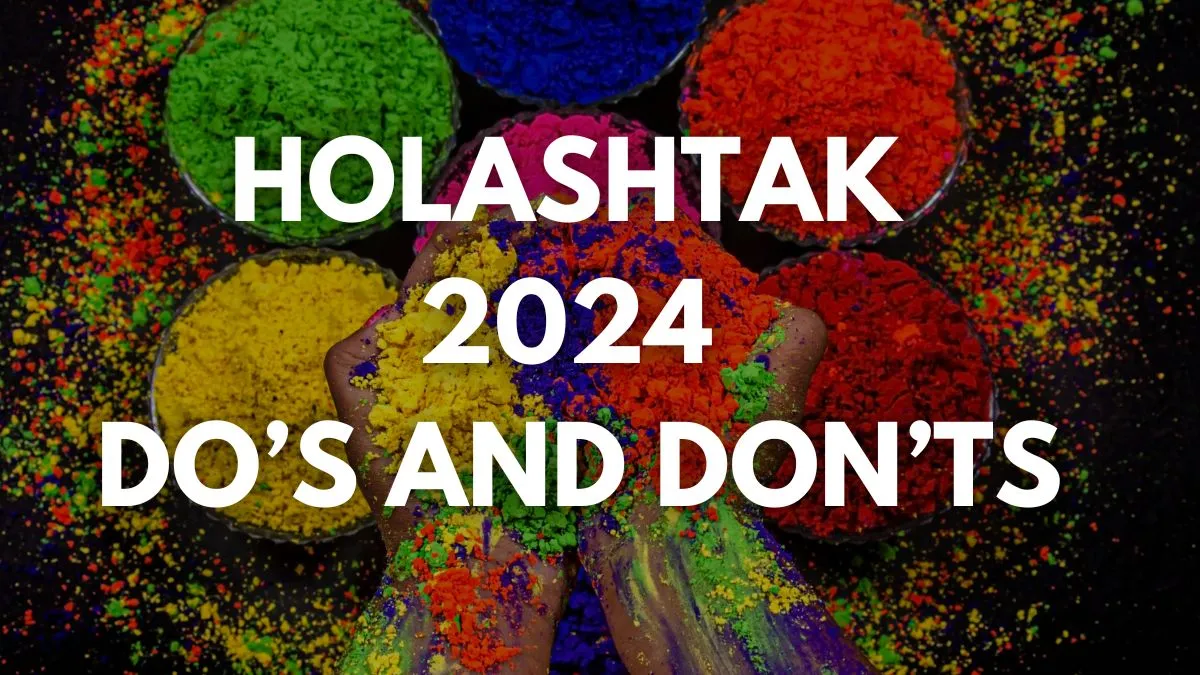- By Kashish Rai
- Fri, 15 Mar 2024 11:04 AM (IST)
- Source:JND
Holashtak 2024: The inauspicious period known as "Holashtak" refers to the eight days that precede the Holi celebrations. The Purnimant calendar, which is followed in North India, suggests that Holashtak begins on the eighth day of the brilliant fortnight of the moon, or Ashtami, and lasts until the full moon day, or Purnima, of the month of Falgun. Holika Dahan is observed on Falgun Purnima, the last day of Holashtak. This year, Holashtak are starting from 17th March 2024.
However, there are certain do’s and don’ts that must be followed during this inauspicious period. Let us know about them further.
Holashtak 2024: Tithi For Holashtak
This year, on March 16 at 09:39 PM, Falgun Shukla Ashtami Tithi ends at 09:53 AM on March 17. Thus, according to Udayatithi, March 17 is Phalgun Shukla Ashtami Tithi which marks the start of Holashtak. On March 24, 2024 (Phalgun Purnima), Holashtak comes to an end with Holika Dahan. As a result, the eight-day Holashtak period ends on March 24 and is succeeded by the Holi festival on March 25.

Do's and Don'ts to follow during Holashtak. (Image Source: Canva)
Holashtak 2024: Do’s And Don’ts To Follow During This Period
- People must not begin any significant or new endeavours,
- Purchasing new items like clothes, shoes and jewellery are forbidden during Holashtak.
- Important customs including naming ceremonies, weddings, house warmings, and head-shaving rites must not be performed during Holashtak.
- People must follow modesty, self-control, and celibacy during this unfavourable period.
- Holashtak is a good period to reflect on one’s life and undergo transformation. Hence, people must engage in spiritual practices.
- People must engage in the acts of charity and donate to the needy people.
- It is highly advised to worship Lord Vishnu during this period.
- People must additionally read spiritual books like Srimad Bhagavatam, Shrimad Bhagavad Gita and recite Vishnu Sahastranam, Shri Hari Stotram etc.
(Disclaimer: This is based on general public information. Jagran English does not confirm its veracity. Before adopting any measures, consult an expert from the relevant field.)


